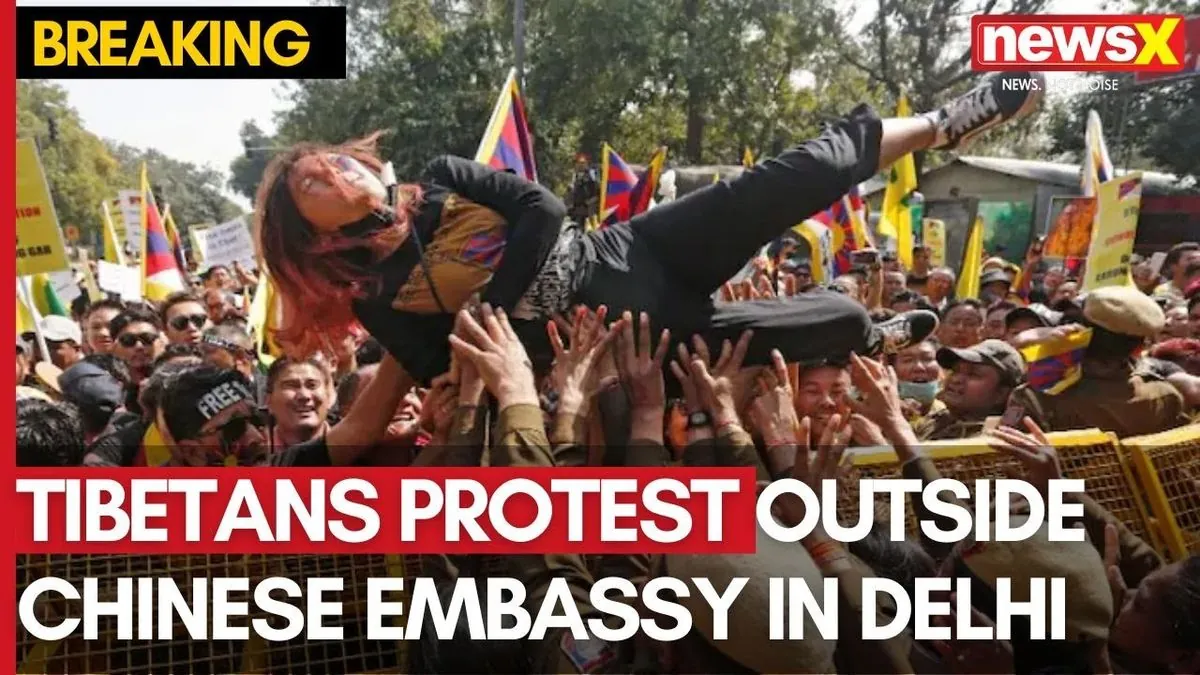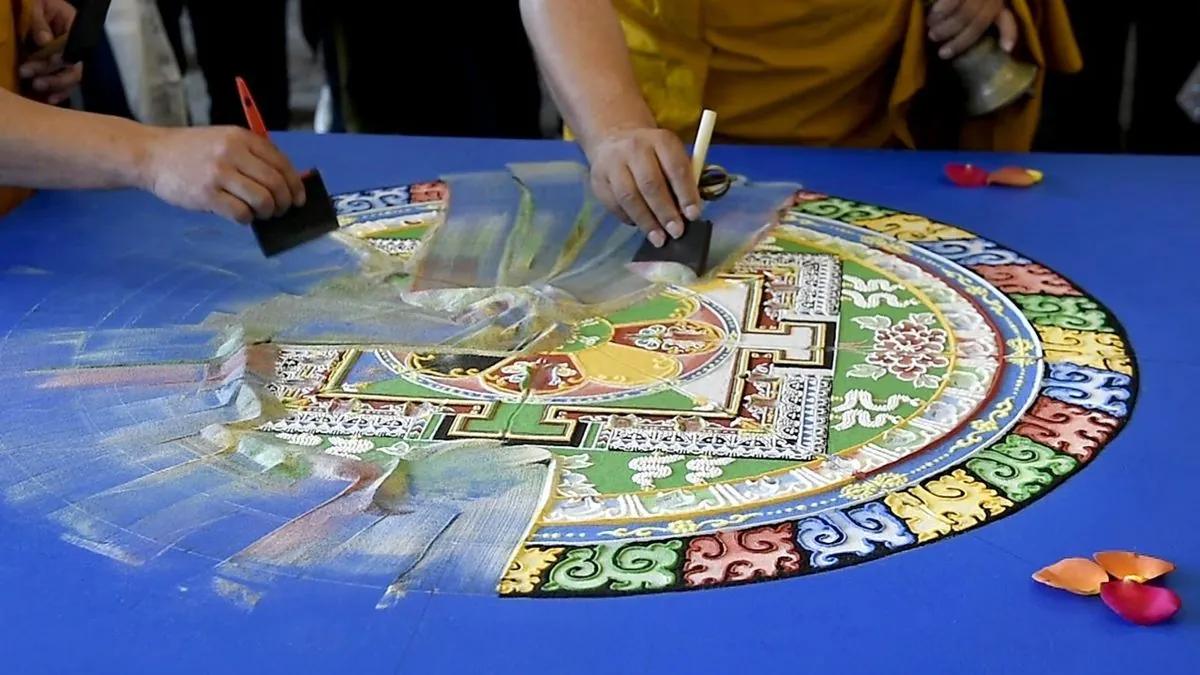Tibetan Protesters in India Decry China's Policies on 75th Communist Anniversary
Tibetan refugees in India protested against China's policies in Tibet, coinciding with the 75th anniversary of Communist rule. The demonstration highlighted ongoing tensions and calls for Tibetan autonomy.

On October 1, 2024, as China marked 75 years of Communist Party governance, Tibetan refugees in India staged a protest outside the Chinese embassy in New Delhi. The demonstration, organized by the Tibetan Youth Congress, aimed to draw attention to the human rights situation in Tibet, a region China annexed 73 years ago.
The protest highlighted the ongoing tensions between Tibet and China, rooted in a complex history. Tibet, often referred to as the "Roof of the World" due to its average elevation of 4,500 meters, has been under Chinese control since 1951. This high-altitude region, home to unique cultural practices such as yak butter tea consumption and the creation of intricate sand mandalas by monks, has faced significant challenges in preserving its identity.
Sonam Tenzin, a protester, expressed concern over what they termed "cultural genocide" in Tibet. The demonstrators urged the international community to support their cause, emphasizing the need to protect Tibet's native Buddhist culture and traditions.

Tibet's distinct cultural heritage includes the practice of Tibetan Buddhism, a major branch of Mahayana Buddhism. The region is also known for its traditional medicine system, Sowa-Rigpa, which has a history spanning over two millennia. These cultural elements, along with the Tibetan language - part of the Sino-Tibetan language family - are at the core of what protesters seek to preserve.
The Tibetan government-in-exile, based in India, has accused China of suppressing Tibetan identity and denying fundamental rights to people in Tibet. This government, along with approximately 85,000 Tibetan refugees, has found sanctuary in India following political upheavals in their homeland.
The Dalai Lama, Tibet's spiritual leader who was awarded the Nobel Peace Prize in 1989, has resided in Dharamshala, northern India, since fleeing Tibet 65 years ago after a failed uprising against Chinese rule. Despite China's claims, the Dalai Lama maintains that he is not a separatist, instead advocating for substantial autonomy and the protection of Tibet's Buddhist culture.
"We do not seek independence. We seek genuine autonomy for the Tibetan people within the framework of the People's Republic of China."
The protest in New Delhi was met with a strong police response, with some demonstrators being detained after attempts to approach the embassy. This incident underscores the ongoing diplomatic sensitivities surrounding the Tibet issue.
Tibet's significance extends beyond its cultural richness. The Tibetan Plateau, often called the "Third Pole" due to its vast ice fields, plays a crucial role in Asia's water supply, earning it the moniker "Water Tower of Asia." The region is also home to unique wildlife, including the elusive snow leopard and the Tibetan antelope, known for its extremely fine wool.
As the world observes these developments, the Tibetan issue remains a complex challenge in international relations, balancing cultural preservation, human rights concerns, and geopolitical interests.


































